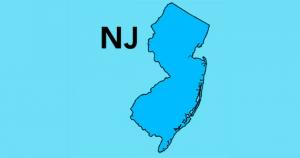New Jersey: ~9,000 seniors are being screwed by an insane briar patch of conflicting regulations

I managed movie theaters for most of the '90's, and was in charge of the concession stand & its staff. One year I came back from vacation to find the employees cleaning the concession stand after a big rush of customers.
I was happy to see this until I realized that some of the staff were using a mop with bleach-based cleanser to clean the floor at the same time other staffers were using an ammonia-based cleanser to clean the glass popcorn bins right next to the employee mopping.
I freaked out a bit, ordering them to stop immediately and turning on a fan to blow the fumes in opposite directions. Apparently neither the employees nor the other manager who had been covering my department while I was on vacation had ever learned that mixing bleach and ammonia can be fatal.
When I asked about it, the other manager apologized but explained that they were simply trying to follow both state and local health/safety board rules. You see, some of the staff were college students while others were minor high school students.
If I recall correctly,* at the time, Michigan OSHA regulations prohibited employees under 18 years old from using bleach-based cleaning products...but the Dearborn, Michigan health department required bleach-based cleanser to be used for cleaning floors. So, they had the college student mopping with bleach while the high school student cleaned the glass with ammonia.
Ironically, in trying to follow the rules on health and safety, they nearly ended up killing both employees.
*Note: I may have some of this backwards; it's been 30 years so my memory is a bit fuzzy.
There's a situation in New Jersey which reminded me of this anecdote.
Over at Xpostfactoid, my friend & colleague Andrew Sprung has an amazingly well-researched post about a bureaucratic nightmare situation which up to ~9,000 senior citizens living in New Jersey are facing this year:
New Jersey’s Department of Banking and Insurance (NJ DOBI) allows or indeed requires insurers in its Individual Health Coverage (IHC) program to presume that enrollees who are over age 65 are eligible for Medicare — unless the enrollee provides proof positive otherwise. AmeriHealth, the insurer with the largest market share in enrollments via GetCoveredNJ, the state ACA exchange, requires such enrollees to obtain a letter from the Social Security Administration stating that they are ineligible, and why. Otherwise, the insurer pays their claims only as a secondary payer, presuming that Medicare will pay the bulk of each claim.
That leaves the enrollee on the hook for the bulk of every medical bill she incurs, rendering the insurance policy’s statutory out-of-pocket limit essentially void.
As of the end of the New Jersey ACA marketplace’s Open Enrollment Period for 2023, 8,929 enrollees in health plans obtained through GetCoveredNJ were over age 65 (as were 287,715 ACA marketplace enrollees nationally). Most of them are probably legally present immigrants who lack the 40 quarters (10 years) of tax-paying work required to obtain free Part A Medicare (those who are ineligible for free Part A coverage are eligible for subsidized plans in the ACA marketplace if their income qualifies them). The onus is now on all New Jersey marketplace enrollees over age 65 to prove that they are ineligible for Medicare. That entails applying to the Social Security Administration and getting a rejection letter, which can take up to 60 days, according to the SSA help line. Obtaining proof of ineligibility is also…a process.
He goes pretty deep into the weeds on the specific regulations surrounding this at the federal and state level...which appear to be completely at odds with each other:
These provisions appear to be illegal. I queried the federal Center for Medicare and Medicaid Services (CMS), because it seemed to me that if an ACA exchange finds an applicant eligible for premium subsidies, that person must have been determined ineligible for Medicare — e.g., by an immigration document showing that the person could not have obtained the required work history for full Medicare eligibility. A spokesperson for CMS pretty much confirmed that, via email...
...NJ DOBI has authorized insurers in its individual market to do what is explicitly prohibited here. In fact they are compelled by contract to do it.
This isn't an academic or theoretical scenario, by the way--it was a real world example which happened to someone he knows which led to him doing the research on this mess in the first place:
I have viewed current AmeriHealth bills, sent to a person over age 65 who is not eligible for Medicare, in which every charge, each for hundreds of dollars, is ascribed a code that signifies, according to the Explanation of Remark Codes:
You are eligible for Medicare as the Primary payer, but have not enrolled. The amounts payable under Medicare, as the primary payer, are excluded and IBC [Independent Blue Cross, AmeriHealth’s parent] will pay as the secondary payer. The provider may bill you for the excluded amounts (my emphasis).
Those provider bills can easily run into the thousands or tens of thousands of dollars, unlimited by the insurance policy’s putative annual out-of-pocket maximum.
I strongly advise reading his entire post...and if you live in New Jersey, perhaps contacting the state's Department of Banking & Insurance to get them to correct the situation.



